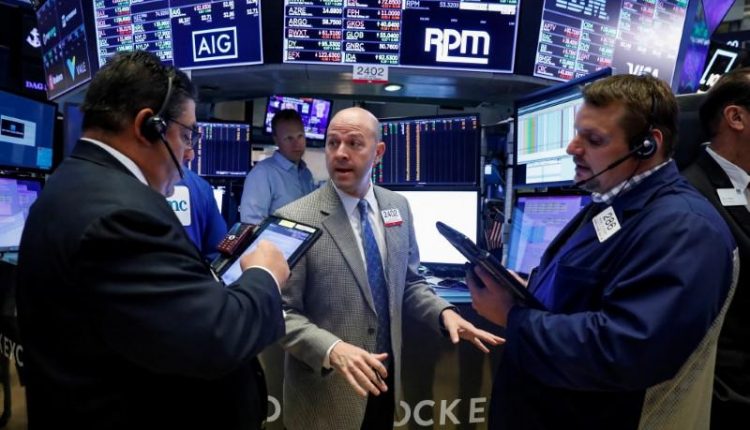U.S. stocks rise as Wall Street cheers jobs report, shakes off trade fears
Stocks rose on Friday on the back of stronger-than-expected employment data. Investors also shrugged off concerns over an escalating trade war between the U.S. and China.
The Dow Jones Industrial Average jumped 99.74 points to 24,456.48, with Apple and Microsoft outperforming. The S&P 500 closed 0.8 percent higher at 2,759.82, with health care rising 1.5 percent. The Nasdaq composite climbed 1.3 percent to 7,688.39 as the iShares Nasdaq Biotechnology ETF (IBB) surged 3.8 percent. Facebook rose to an all-time high, also boosting the Nasdaq.
The U.S. economy added 213,000 jobs in June, while economists polled by Reuters expected a gain of 195,000.
“I think the report is more encouraging than discouraging because it suggests we have a bit more slack in the economy than we expected,” said Bruce McCain, chief investment strategist at Key Private Bank. “I don’t think this (report) is extreme enough to be considered Goldilocks, … but it’s still good.”
Unemployment, however, rose slightly to 4 percent from 3.8 percent. Wage growth also missed expectations, climbing 2.7 percent on a year-over-year basis. Economists expected growth of 2.8 percent.
“The unemployment rate went up for the right reason: more people coming into the work force,” said Eric Souza, senior portfolio manager at Silicon Valley Bank. “It was a good report, but what would’ve made it a great report is if we saw wages rise a bit more.”
The jobs report comes a day after the Federal Reserve released a summary from its most-recent meeting. The minutes showed some officials were concerned that “a prolonged period in which the economy operated beyond potential could give rise to heightened inflationary pressures.”
“A strong June labor report, coupled with upward revisions for April and May, gives the Fed a solid rationale for continuing with rate increases this year,” said Quincy Krosby, chief market strategist at Prudential Financial. “Nonetheless, wage growth remains stubborn, and the potential for an enduring trade war could — and perhaps should — give the Fed reason for pause.”



